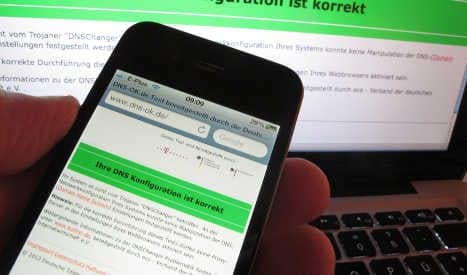Working on the move increases malware risk

More and more people are opting to work on the go or from home using smart phones and tablets. But German experts and employers are warning that the practice is putting company information at risk from viral attacks.
It’s a convenience and a curse. Working on the train or from home has afforded employees more flexibility. But working on personal, and often unsecured, devices can come at a price.
A study by financial services company KPMG concluded that mobile devices were particularly at risk from malware. Operating systems for mobile phones and tablet computers, which are designed for personal use, are increasingly becoming the targets of attacks.
Berlin data protection commissioner Alexander Dix cautioned against the growing trend among companies of allowing workers to BYOD, or, “Bring Your Own Device,” and has advised the practice to remain the exception rather than the rule.
Experts point out that many people are ill-informed about security and data protection, regardless of the fact that they could be storing extremely sensitive company information on their devices. Employees working from their own devices risk affecting the entire company in the case of a viral attack.
At the end of last year, a laptop belonging to the employee of a pharmaceutical company was stolen from a car, along with data relating to some 100,000 patients.
Attacks on Android devices have sky-rocketed in recent years and are expected to rise further in 2013. And Apple products are at risk too. Two thirds of employers expect a rise in online security threats in the coming year.
IT experts advise companies encouraging their employees to work on the go to provide their own mobile devices. Syncing employees’ personal devices to a company security system is complicated by the presence of workers’ own personal information.
The German government earlier this month reacted to concerns by ordering 10,000 secured smart phones for its staff.
DAPD/The Local/kkf
Comments
See Also
It’s a convenience and a curse. Working on the train or from home has afforded employees more flexibility. But working on personal, and often unsecured, devices can come at a price.
A study by financial services company KPMG concluded that mobile devices were particularly at risk from malware. Operating systems for mobile phones and tablet computers, which are designed for personal use, are increasingly becoming the targets of attacks.
Berlin data protection commissioner Alexander Dix cautioned against the growing trend among companies of allowing workers to BYOD, or, “Bring Your Own Device,” and has advised the practice to remain the exception rather than the rule.
Experts point out that many people are ill-informed about security and data protection, regardless of the fact that they could be storing extremely sensitive company information on their devices. Employees working from their own devices risk affecting the entire company in the case of a viral attack.
At the end of last year, a laptop belonging to the employee of a pharmaceutical company was stolen from a car, along with data relating to some 100,000 patients.
Attacks on Android devices have sky-rocketed in recent years and are expected to rise further in 2013. And Apple products are at risk too. Two thirds of employers expect a rise in online security threats in the coming year.
IT experts advise companies encouraging their employees to work on the go to provide their own mobile devices. Syncing employees’ personal devices to a company security system is complicated by the presence of workers’ own personal information.
The German government earlier this month reacted to concerns by ordering 10,000 secured smart phones for its staff.
DAPD/The Local/kkf
Join the conversation in our comments section below. Share your own views and experience and if you have a question or suggestion for our journalists then email us at [email protected].
Please keep comments civil, constructive and on topic – and make sure to read our terms of use before getting involved.
Please log in here to leave a comment.